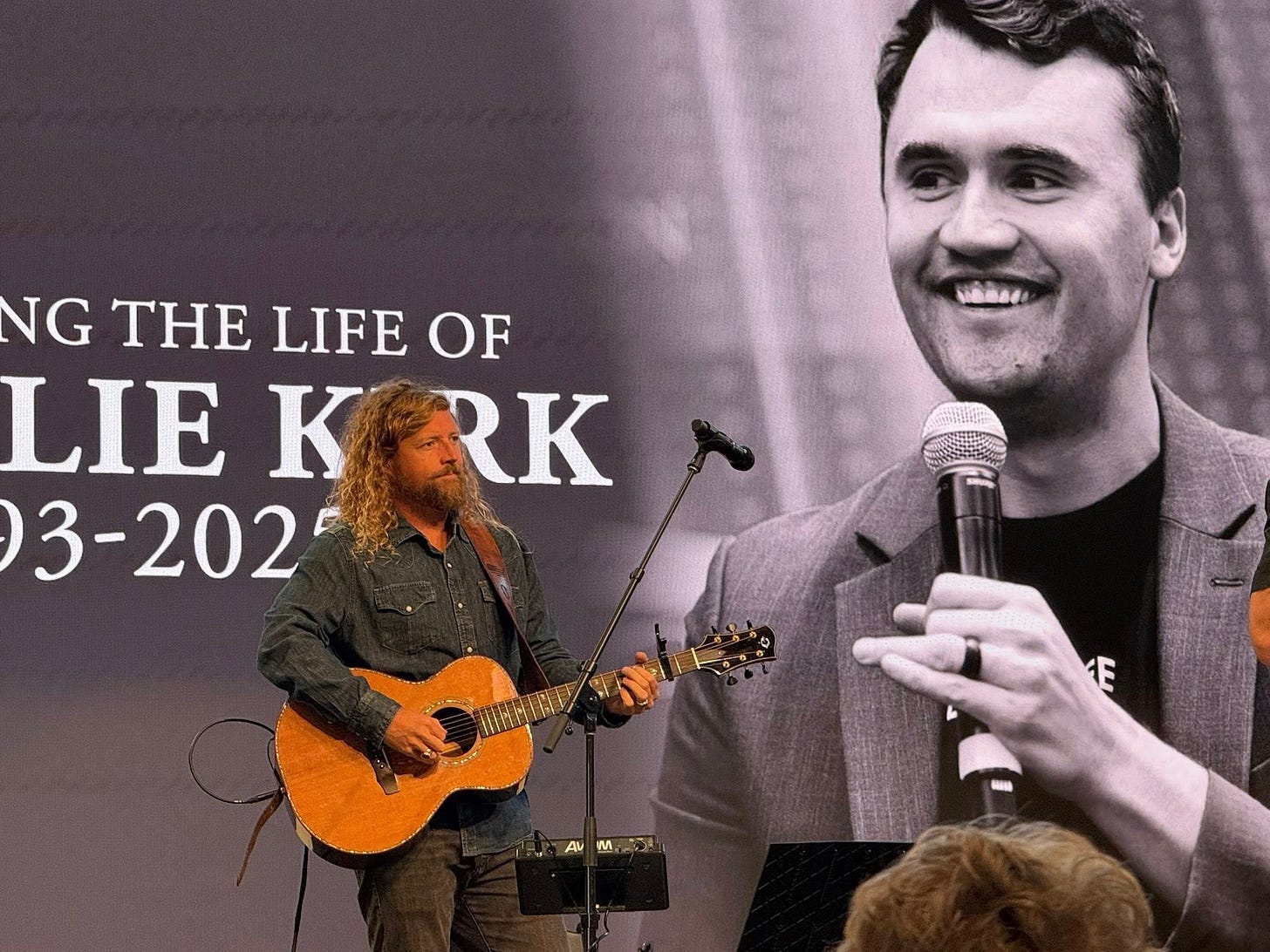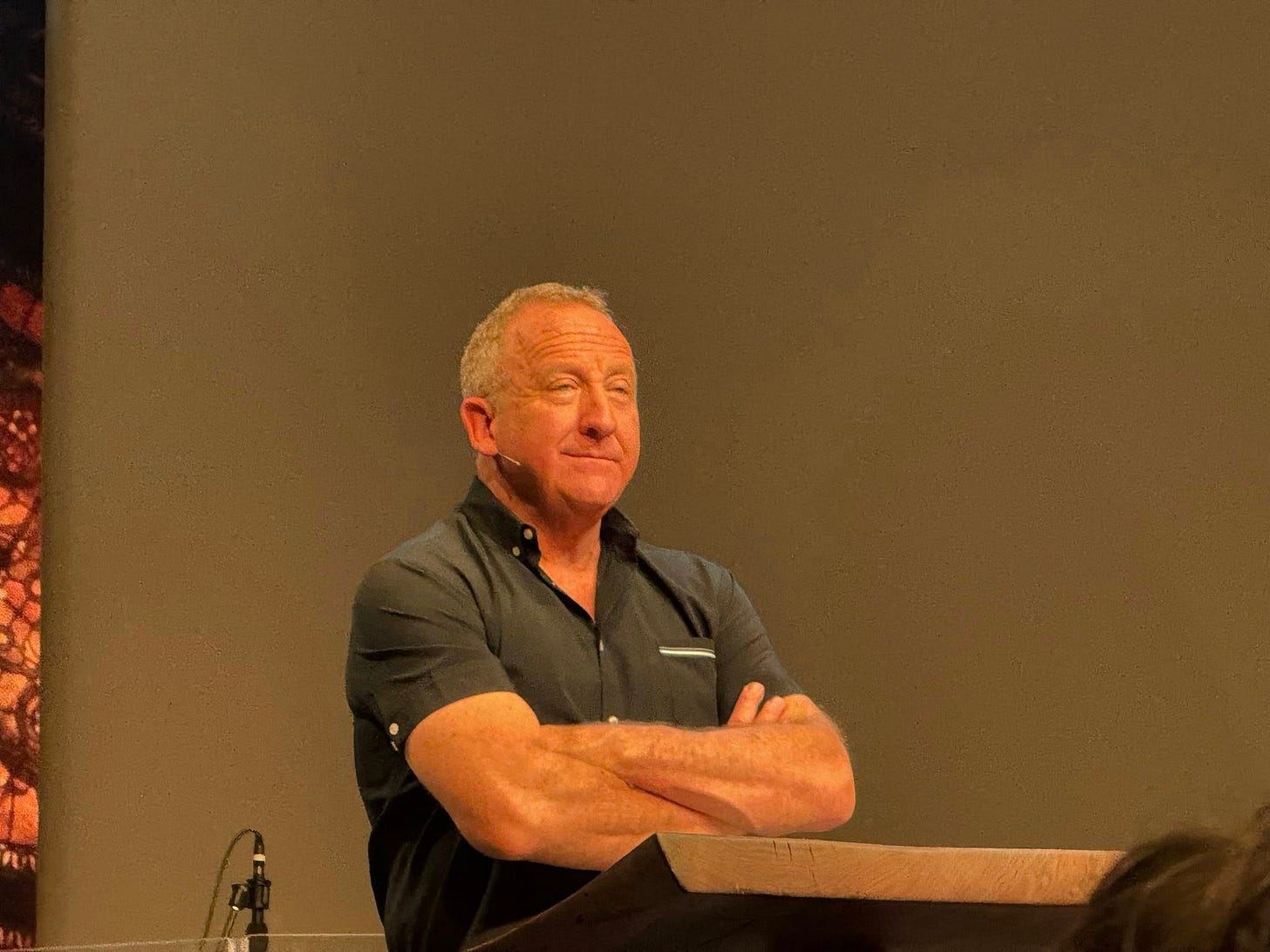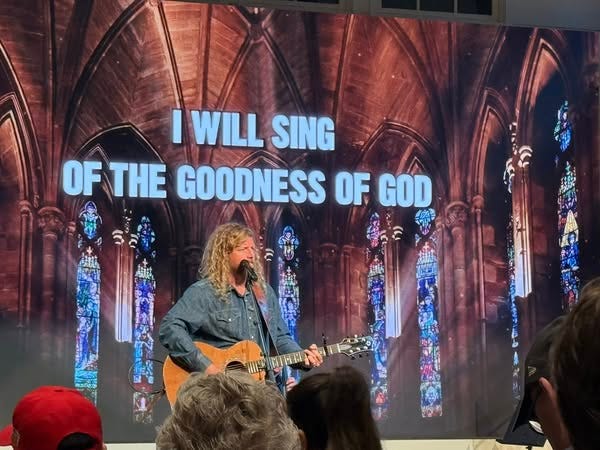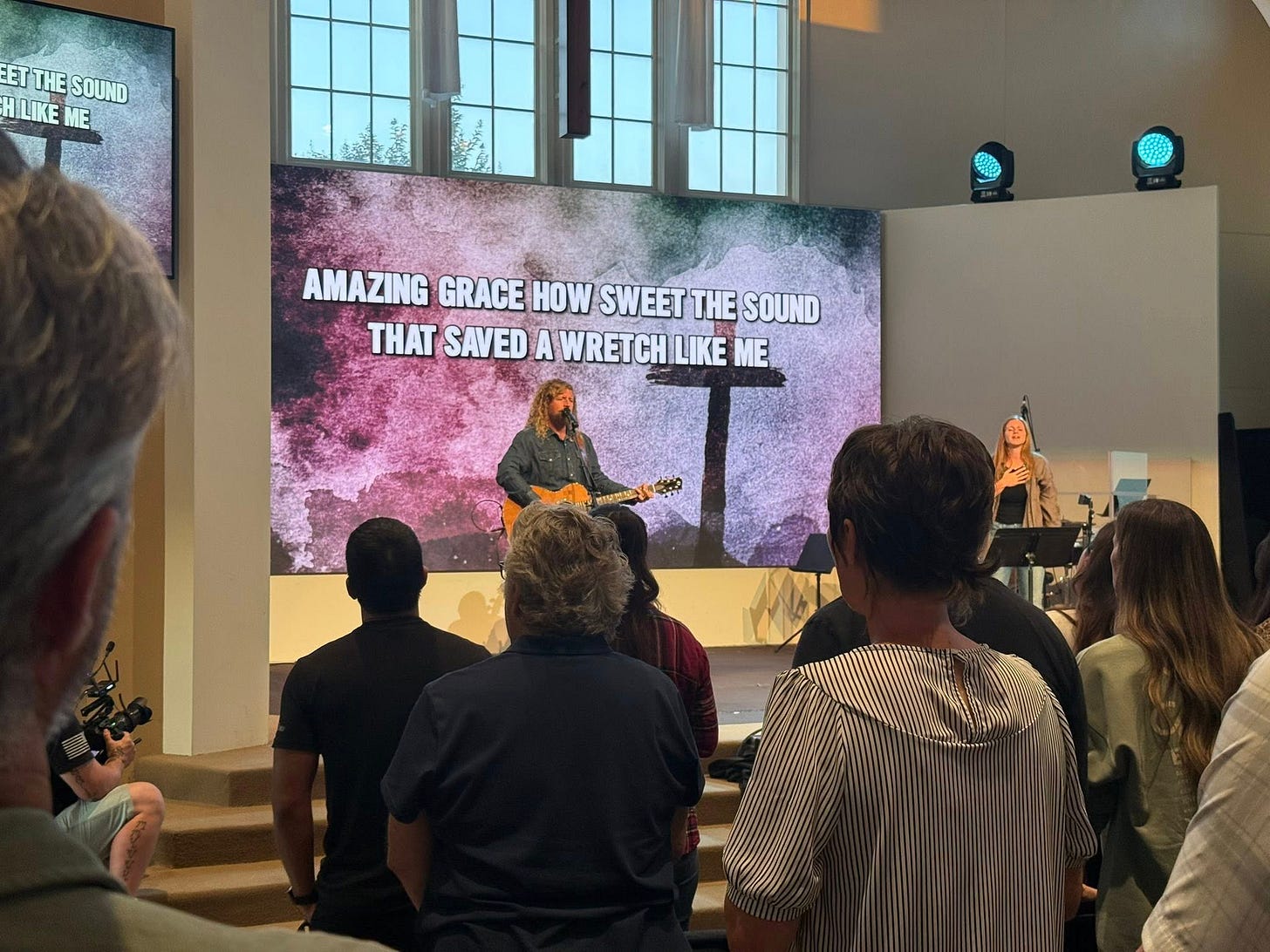By Michael Peabody –
The sanctuary at Godspeak Calvary Chapel in Thousand Oaks was packed. Every seat was filled, every wall lined. Those who couldn’t get inside stood outside in silence, listening through speakers. It was not just a memorial. It was a moment of transfer.
“I’m running out of tears,” said Pastor Rob McCoy, pausing to collect himself. “I didn’t think I could cry that much… but I’m crying.” Then he stood upright. “I’m sad. I’m mournful. But I’m not in despair, because we serve a God of hope.”
Charlie Kirk, founder of Turning Point USA, had died. But the story from the pulpit was not about an ending. It was about inheritance.
A Spiritual Home, Not Just a Platform
Charlie Kirk did not just visit Godspeak. He chose it. He tithed to it. He preached his first sermon there. He called it home. And according to McCoy, that meant everything.
“He knew this was a congregation that understood the church is supposed to be in the middle of the ecclesia, the public square,” McCoy said. “He loved coming here. This church was a blessing to him.”
McCoy was not simply the host pastor of the memorial. He was Kirk’s pastor.
“I didn’t understand why that meant something to him at first,” McCoy recalled. “But I told him, you don’t have to be ashamed that you’re political. Just put Christ in it. Do it in churches. The church doesn’t want that. But they need it.”
Kirk, known for speaking confidently before thousands, had once stood behind the Godspeak pulpit trembling. “He was shaking,” McCoy said. “Because he had reverence for the Word of God and love for the bride of Christ.”
That reverence defined his bond with the church. And his work, in McCoy’s words, was unusually fruitful.
“He did more for the advancement of Christendom than any minister I can think of in modern-day churches across America,” one speaker said. “He took on the tough topics. And because of that, churches now want what he had.”
The Final Journey
Six days before his death, Kirk traveled to South Korea with Pastor McCoy. He did not like to leave the country. He had previously declined international travel, even to attend debates in the UK until he went to the one at Cambridge. But when the invitation came to support Buildup Korea, he said yes.
“It was a tall order,” McCoy said. “A burning bush. The hand of God.”
Buildup Korea, founded by a young woman named Mina Kim, was described as the Korean counterpart to Turning Point USA. Kirk and McCoy joined her to support a network of conservative Christians seeking to protect religious freedom and awaken young people to political engagement.
“Korea is a 70-year-old nation,” McCoy told the crowd. “Born in 1948, just like Israel. After years of subjugation under Japanese rule, it was the poorest country on earth. Now it has the eighth-largest GDP. That’s the Korean miracle.”
But the movement warned of growing threats. According to McCoy, the Korean legislature had been infiltrated by Chinese Communist ideology. The president who hosted Buildup Korea was supportive, but churches were backing away. Government threats were mounting. Every major donor except one pulled their funding. Every church withdrew support.
“The churches promised and broke the promise,” McCoy said. “You lose your country with cowardice. You lose freedom with cowardice.”
The Bravest Pastor in Korea
In Busan, Kirk and McCoy visited Pastor Son, a former special forces officer and one of the only megachurch pastors in Korea who had refused to close his church during COVID lockdowns. He led a congregation of more than 15,000.
“He greeted every single person by name,” McCoy said. “And he was facing 22 lawsuits. The government called it electioneering. All he did was speak in favor of a candidate.”
Kirk promised Pastor Son he would raise the issue with the U.S. Secretary of State. “We stand with you,” he told him. He even suggested that if persecution continued, the U.S. should consider tariffs on Korean imports.
Kirk returned to the United States. Days later, Pastor Son was arrested.
Kirk had arranged to feature Pastor Son’s youngest son, Chance, on his podcast. It was scheduled to be recorded the following week. Kirk was killed before it could happen.
A Martyrdom
During the service, Pastor Landon Shot’s letter was read aloud. It made a direct comparison to the early church.
“As the martyrdom of Stephen gave rise to the ministry of the Apostle Paul,” Shot wrote, “may Charlie’s martyrdom give rise to thousands of bold prophetic voices across this nation.”
McCoy picked up the thread. “The church was built on the blood of martyrs,” he said. “And is now going to be awakened by the blood of a martyr.”
He continued, “When Charlie was murdered, cities didn’t burn. There were no riots. We did what the press says is a waste of time. We prayed.”
A Prayer and a Charge
The service closed with music led by Sean Feucht. Then Feucht stepped forward to pray.
“The fame of your name, Jesus, be broadcasted on every news outlet on planet Earth,” he said.
The sanctuary was silent.
McCoy returned to the pulpit one last time. “Charlie’s course is over,” he said. “Ours is beginning.”
Plans are underway for a memorial event in Phoenix honoring Charlie Kirk. Organizers expect it to draw more than 60,000 people and be broadcast around the world.
Disclosure: The author’s home church, The Place Adventist Fellowship, shared worship space with Godspeak Calvary Chapel for several years before Godspeak relocated to its current facility. Photos by the author.
A video of the event is available here:
Tags: Charlie Kirk Godspeak Calvary, Rob McCoy South Korea, Sean Feucht prayer, Buildup Korea, Pastor Son arrest



